inca- inch
Research
20 / 119 resultsresearch Hair After Death

research Scientific Opinion on the Tolerable Upper Intake Level for Selenium
Adults should not consume more than 255 micrograms of selenium per day to avoid risk of hair loss and other side effects.

research Controversies in Plastic Surgery: Suction-Assisted Lipectomy and the hCG Protocol for Obesity Treatment
The document concludes that the hCG protocol may help in obesity treatment and could be scientifically justified, but more research is needed.
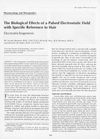
research The Biological Effects of a Pulsed Electrostatic Field with Specific Reference to Hair Electrotrichogenesis
A pulsed electrical field safely and effectively increased hair growth.

research Abstracts of 42nd National Conference of Association of Clinical Biochemists of India (ACBICON 2015)
The conference presented findings on how vitamin D levels, genetic factors, and lifestyle choices like smoking and yoga affect various health conditions and diseases.

research Regenerative Medicine Strategies for Hair Growth and Regeneration: A Narrative Review of Literature
New regenerative treatments for hair loss show promise but need more research for confirmation.

research Wording Creates Misunderstanding
A drug helped quickly reduce a movement disorder, experts debated the severity of Raynaud phenomenon, and rapid weight loss was linked to temporary hair loss with good recovery.

research Adverse Reactions to Enemas
Enemas can cause septicemia in elderly men with prostate infections.

research Raynaud Phenomenon and Long-Term Risks
Most people with Raynaud's won't get serious diseases, but doctors should watch for signs over time; also, quick weight loss can cause hair loss.

research Crash Dieter's Hair Loss
Rapid weight loss can cause temporary hair loss, but hair usually grows back.
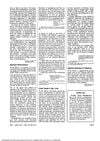
research Raynaud Phenomenon - Reply
Doctors disagree on whether Raynaud phenomenon often leads to serious diseases, but agree that patients should be monitored for possible progression while being reassured. Rapid weight loss may cause hair loss.

research Hereditary, Congenital, and Acquired Alopecias in Dogs and Cats
The conclusion is that different types of hair loss in dogs and cats can be cosmetic or serious, and affected animals should not be bred.

research Epidermal Stem Cell Fate: What Can We Learn from Embryonic Stem Cells?
Embryonic and adult stem cells are valuable for improving skin grafts and cell therapy.
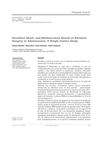
research Excellent Short- and Medium-term Results of Bariatric Surgery in Adolescents: A Single Center Study
Bariatric surgery is safe and effective for treating adolescent obesity.
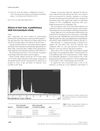
research Silicon in Hair Loss: A Preliminary SEM Microanalysis Study
The study suggests silicon might be important for healthy hair, as less silicon was found in people with hair loss.
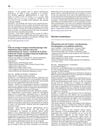
research Adult Phenylketonuria: Neurological Manifestations and Evolutionary Modalities
Proper diet management is crucial for preventing severe symptoms in phenylketonuria.

research Skin Commensal Antigens: Taking the Road Less Traveled
Skin bacteria can help wound healing by activating certain immune cells.

research Hereditary, Congenital, and Acquired Alopecias
Different types of hair loss in dogs and cats have various causes and treatments, with outcomes ranging from good to uncertain.

research Hereditary, Congenital, And Acquired Alopecias
Alopecia in animals can be hereditary, congenital, or acquired, with treatments and outcomes varying widely.

research A Randomized, Active- and Placebo-Controlled Study of the Efficacy and Safety of Different Doses of Dutasteride Versus Placebo and Finasteride in the Treatment of Male Subjects with Androgenetic Alopecia
Dutasteride 0.5 mg works better than finasteride and placebo for increasing hair in men with hair loss.